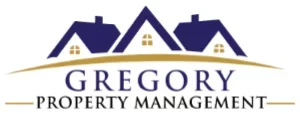Washington State’s House Bill 1217 (HB 1217), signed into law on May 7, 2025, represents a landmark change in landlord-tenant law, particularly by introducing statewide rent control measures.
Here’s a summary of its most significant changes:
* Statewide Rent Cap: This is the most impactful change. For most residential properties, annual rent increases are now capped at the lesser of 7% plus the Consumer Price Index (CPI), or 10% total. This means even if inflation is very high, the maximum increase generally cannot exceed 10% within a 12-month period. For manufactured and mobile home communities, the cap is set at 5% annually.
* No Rent Increases in the First Year: Landlords are explicitly prohibited from increasing rent during the first 12 months of any new tenancy, regardless of whether it’s a month-to-month or fixed-term lease.
* Extended Notice Period for Rent Increases: Landlords must now provide at least 90 days’ written notice for any rent increase. This is an increase from the previous 60-day requirement. Furthermore, for increases effective on or after July 27, 2025, the notice must be sent via certified mail and use a specific statutory form.
* Parity in Lease Types: The bill restricts landlords from charging a significant difference in rent between month-to-month tenancies and fixed-term leases, limiting it to no more than a 5% difference.
* Tenant Right to Terminate Lease: If a landlord attempts an unlawful rent increase (i.e., one that exceeds the new caps and is not cured), tenants are granted the right to terminate their lease without penalty with 20 days’ written notice.
* Increased Enforcement Powers: The Washington State Attorney General’s office now has expanded authority to investigate violations of these new provisions and can impose civil penalties (up to $7,500 per violation). Tenants also have a private cause of action to seek damages if their rights are violated.
* Exemptions: Not all properties are subject to the rent caps. Key exemptions include:
* New Construction: Properties that received their certificate of occupancy within the last 12 years are exempt from the rent caps for those 12 years.
* Owner-Occupied Small Units: Duplexes, triplexes, and fourplexes where the owner lives in one of the units are typically exempt.
* Affordable Housing: Units classified as affordable housing with restricted rents or those owned by certain non-profit housing providers are also generally exempt.
* Landlord Resource Center: The bill directs the Washington State Department of Commerce to establish an online resource center to provide information and support to landlords regarding the new laws and available programs.
In essence, HB 1217 aims to provide greater stability and predictability for tenants by limiting rent increases and strengthening tenant protections, while also including some considerations and exemptions for landlords and new construction.
